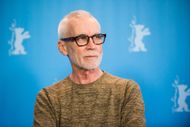Lee Tamahori, the filmmaker behind Die Another Day and Once Were Warriors, passed away at 75 after battling Parkinson’s disease for several years. According to Tamahori's family, he died peacefully at his North Shore home, surrounded by family and friends. Earlier in 2025, as reported by 1News on November 7, Tamahori publicly shared his illness, appearing on Whakaata Māori:
“Mentally, I still have my marbles in my head.”
His passing has attracted significant attention within the New Zealand film industry and beyond. His colleagues recalled him as a leader who was strong and considerate and remained involved in creative conversations, even when he was unwell. His passing represents not only the loss of significant career and contribution to the shaping of contemporary New Zealand film but also a great loss of creative influence that has exported Māori stories to audiences beyond our national borders.
Tamahori has worked at both the local and international levels of the film industry. Most of his career was spent in New Zealand, where he established a reputation for storytelling, supporting younger filmmakers, and helping to develop the next generation of filmmakers. He made his way to Hollywood, but did not forget his roots.
Lee Tamahori’s health and final years

During his final years, Lee Tamahori was afflicted with a movement disorder known as Parkinson's disease, which is a continually advancing disease of the brain resulting in movement, coordination, and almost all aspects of day to day life being compromised. He did not seek to disguise his condition of Parkinson's.
Earlier this year, he gave a candid interview for Te Ao with Moana, where he spoke about life with Parkinson's disease. He described some of the physical aspects of the illness while clearly stating that he had his mind, and he said;
"I shake like this, but mentally I still have my marbles in my head.”
He tracked the development of his projects even in the case when even when his physical health declined. He was also a supporter of young talent, and he would still encourage and mentor them. He became very open about Parkinson’s disease and created awareness of the disease.
According to a statement, Lee Tamahori died peacefully at home, in the company of his long-time love Justine, his children Sam, Max, Meka, and Tané, his daughters-in-law Casey (who is expecting), Meri, his grandchild Cora Lee, and whānau.
They added a heartfelt tribute, saying:
“His legacy endures with his whānau, his mokopuna, every filmmaker he inspired, every boundary he broke, and every story he told with his genius eye and honest heart. A charismatic leader and fierce creative spirit, Lee championed Māori talent both on and off screen.”
Read More: Fantastic Four: First Steps - How Galactus and Silver Surfer could return to the MCU next
Career highlights and legacy

Lee Tamahori began his professional life in the New Zealand film industry and got international recognition with his first film Once Were Warriors, which arrived in 1994. The film introduced Māori narratives and Māori culture to a global audience, and from that moment on, Tamahori's importance as one of New Zealand's leading directors began.
Die Another Day is the twentieth film in the James Bond series, directed by Lee Tamahori in 2002, and is another film starring Pierce Brosnan. The effect of this film provided Tamahori with a global audience and was an important landmark for him. Though involved in large budget projects, Tamahori still focused on smaller and personal stories, which contained some of his culture.
Lee Tamahori was also a mentor to many young filmmakers in the course of his life. He sponsored projects reflecting native voices and stories in New Zealand. His role went beyond directing because he contributed to establishing a trail of future storytellers within his community to share their work with the world.
Love movies? Try our Box Office Game and Movie Grid Game to test your film knowledge and have some fun!
